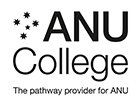
Project Planning, Execution, Monitoring & Controlling and Closing Management Processes (PMP Workshop 2, 3) – Certified Program
Course ID: 2508250101248EGI
Course Dates : 25/08/25 Course Duration : 10 Studying Day/s Course Location: London, UK
Language: Bilingual
Course Category: Professional and CPD Training Programs
Course Subcategories: Leadership and Management Excellence
Course Certified By: * Projacs Academy
* Professional Training and CPD Programs
Certification Will Be Issued From :
KSA
Course Fees: £8,895.11
Vat Not Included in the price. VAT may vary depending on the country where the course or workshop is held.
Click to Pay
Date has passed please contact us Sales@e-s-hub.com
Course Information
Introduction
In an era where organizations are increasingly reliant on structured methodologies to achieve operational excellence, project management has emerged as a cornerstone of success. The ability to plan, execute, monitor, control, and close projects effectively is not merely a skill but a strategic necessity for professionals across industries. This course focuses on the critical processes outlined in the Project Management Body of Knowledge (PMBOK® Guide), ensuring participants gain mastery over the lifecycle of project management. By delving into these processes, participants will be equipped to address the complexities of modern projects, which often involve multiple stakeholders, tight deadlines, and evolving requirements.
One of the key challenges faced by professionals today is the gap between theoretical knowledge and practical application. While many understand the importance of project management frameworks, such as Agile, Waterfall, or Hybrid models, translating these theories into actionable strategies remains elusive. This course bridges that gap by offering hands-on tools, techniques, and real-world case studies. For instance, consider the construction of the Burj Khalifa in Dubai—a monumental project that required meticulous planning and rigorous execution to overcome unprecedented engineering challenges. Such examples underscore the need for a structured approach to managing projects of varying scales and complexities.
The benefits of mastering project management extend beyond individual career growth; they also contribute significantly to organizational success. Companies with robust project management practices report higher rates of project success, reduced costs, and improved efficiency. According to a report by the Project Management Institute (PMI), organizations that invest in project management training see a 28% increase in project success rates. These statistics highlight the tangible value of equipping teams with the skills necessary to navigate the intricacies of project lifecycles.
This course draws upon established theories and frameworks, including PMBOK®, Lean Six Sigma, and Total Quality Management (TQM), to provide a comprehensive understanding of project management principles. Participants will explore concepts such as Work Breakdown Structures (WBS), Earned Value Management (EVM), and Risk Mitigation Strategies, all of which are integral to effective project oversight. By grounding the curriculum in these proven methodologies, the program ensures relevance and applicability across diverse industries, from IT and healthcare to manufacturing and construction.
Real-world applications of the course material are evident in countless success stories. Take, for example, NASA’s Mars Rover mission, which exemplifies the importance of precise planning and continuous monitoring. Every phase of the project—from design and testing to launch and operations—required seamless coordination among multidisciplinary teams. Similarly, professionals attending this course will learn how to replicate such successes in their own contexts, whether managing software development cycles, infrastructure projects, or marketing campaigns.
Ultimately, this program is designed to empower participants to become agents of change within their organizations. By fostering a culture of accountability, collaboration, and innovation, project managers can drive transformative outcomes. Whether you are leading a small team or overseeing a multimillion-dollar initiative, the skills acquired in this course will enable you to deliver projects on time, within budget, and to the satisfaction of all stakeholders. Join us on this journey to elevate your project management capabilities and unlock new opportunities for professional and organizational growth.
Objectives
By attending this course, participants will be able to:
Analyze project requirements and develop comprehensive project plans using industry-standard tools and methodologies.
Design and implement risk management strategies to identify, assess, and mitigate potential threats to project success.
Apply monitoring and controlling techniques, such as Earned Value Analysis, to track project performance and ensure alignment with objectives.
Evaluate project outcomes against predefined success criteria and recommend improvements for future initiatives.
Implement stakeholder engagement strategies to foster collaboration and manage expectations throughout the project lifecycle.
Execute project closure activities, including documentation, handover, and lessons learned sessions, to ensure sustainable results.
Integrate ethical considerations and compliance standards into project management practices to uphold organizational integrity.
Who Should Attend?
This course is ideal for:
Project managers seeking to enhance their skills and earn internationally recognized certifications.
Team leaders responsible for coordinating cross-functional teams and delivering results under tight deadlines.
Consultants and business analysts tasked with optimizing project workflows and improving organizational efficiency.
Engineers, architects, and technical professionals involved in executing complex projects requiring meticulous planning.
HR managers and trainers aiming to align project management practices with organizational goals.
This program is particularly valuable for intermediate learners who have foundational knowledge of project management principles but wish to deepen their expertise. However, it also accommodates advanced practitioners looking to refine their skills and stay updated with the latest trends and best practices.
Training Method
• Pre-assessment
• Live group instruction
• Use of real-world examples, case studies and exercises
• Interactive participation and discussion
• Power point presentation, LCD and flip chart
• Group activities and tests
• Each participant receives a 7” Tablet containing a copy of the presentation, slides and handouts
• Post-assessment
Program Support
This program is supported by:
* Interactive discussions
* Role-play
* Case studies and highlight the techniques available to the participants.
Daily Agenda
The course agenda will be as follows:
• Technical Session 08.30-10.00 am
• Coffee Break 10.00-10.15 am
• Technical Session 10.15-12.15 noon
• Coffee Break 12.15-12.45 pm
• Technical Session 12.45-02.30 pm
• Course Ends 02.30 pm
Course Outlines
Introduction to Project Management
Overview of Project Management Frameworks (PMBOK®, Agile, Hybrid)
Key Roles and Responsibilities in Project Teams
Fundamentals of Project Initiation and Charter Development
Understanding Stakeholder Analysis and Engagement
Day 2:
Project Planning Essentials
Developing Work Breakdown Structures (WBS)
Creating Detailed Project Schedules Using Gantt Charts
Resource Allocation and Budgeting Techniques
Identifying Critical Path Activities
Day 3:
Risk Management Strategies
Risk Identification and Categorization Methods
Qualitative vs. Quantitative Risk Analysis
Developing Risk Response Plans
Tools for Continuous Risk Monitoring
Day 4:
Execution Phase Management
Building High-Performance Project Teams
Effective Communication Plans for Diverse Audiences
Managing Change Requests and Scope Creep
Ensuring Quality Assurance During Execution
Day 5:
Monitoring and Controlling Processes
Introduction to Earned Value Management (EVM)
Tracking Progress Against Key Performance Indicators (KPIs)
Conducting Regular Status Meetings and Reporting
Corrective Actions and Replanning Techniques
Week 2
Day 6:
Advanced Monitoring Tools
Leveraging Software for Real-Time Data Collection
Variance Analysis and Trend Forecasting
Managing Dependencies and Interdependencies
Escalation Protocols for Critical Issues
Day 7:
Closing Projects Successfully
Preparing Final Deliverables and Documentation
Conducting Lessons Learned Sessions
Formal Handover Processes to Clients or Stakeholders
Celebrating Successes and Recognizing Contributions
Day 8:
Ethics and Compliance in Project Management
Ethical Decision-Making in Challenging Scenarios
Legal and Regulatory Requirements for Projects
Ensuring Transparency and Accountability
Building Trust Through Integrity and Professionalism
Day 9:
Case Studies and Best Practices
Review of Successful Global Projects (e.g., Burj Khalifa, Mars Rover)
Lessons Learned from Failed Projects
Applying Industry-Specific Standards and Guidelines
Group Discussions on Practical Challenges
Day 10:
Certification Preparation and Wrap-Up
Recap of Key Concepts and Tools
Mock Exam for PMP Certification Readiness
Personalized Feedback and Action Plans
Networking Opportunities and Next Steps



















































